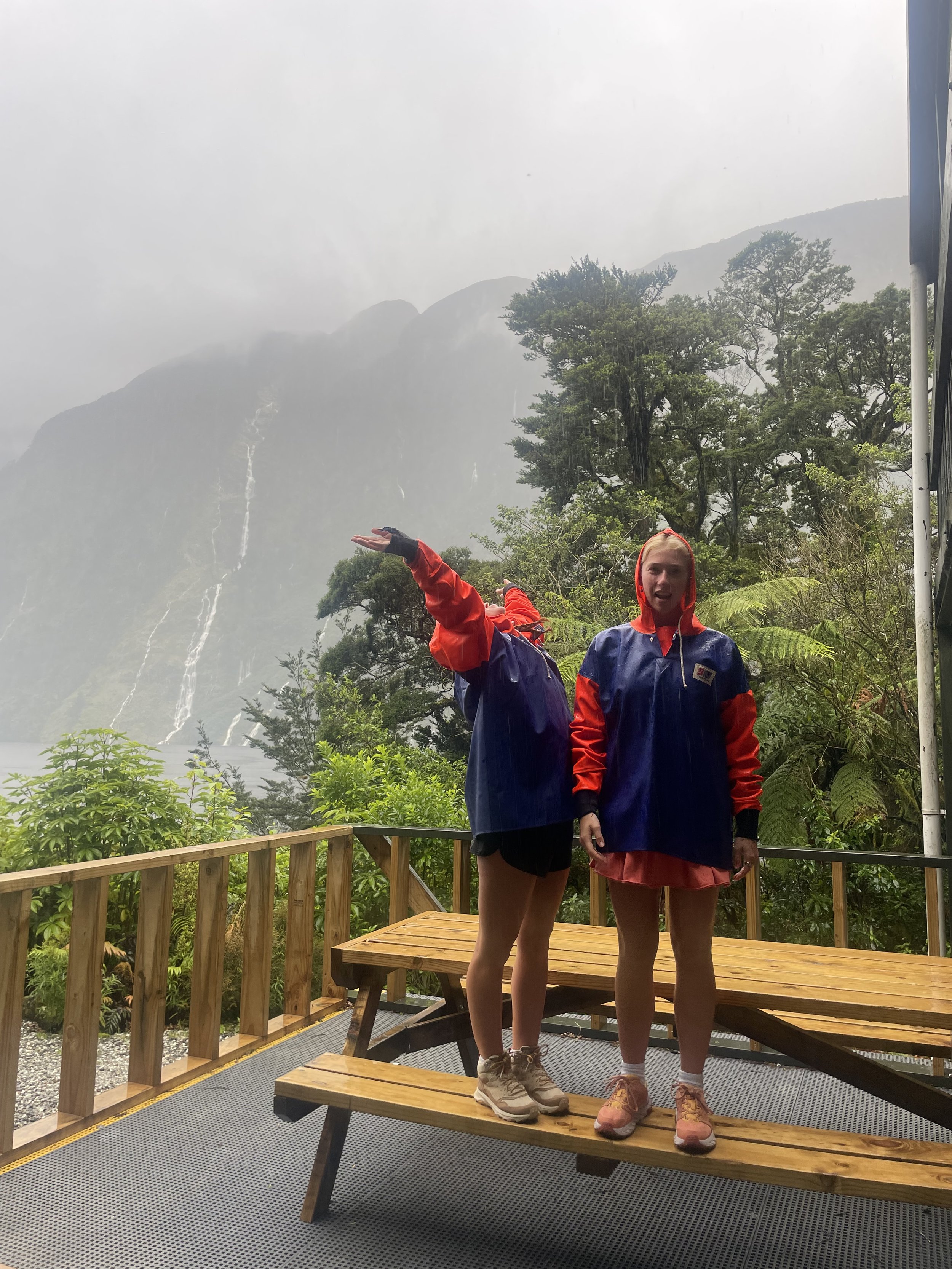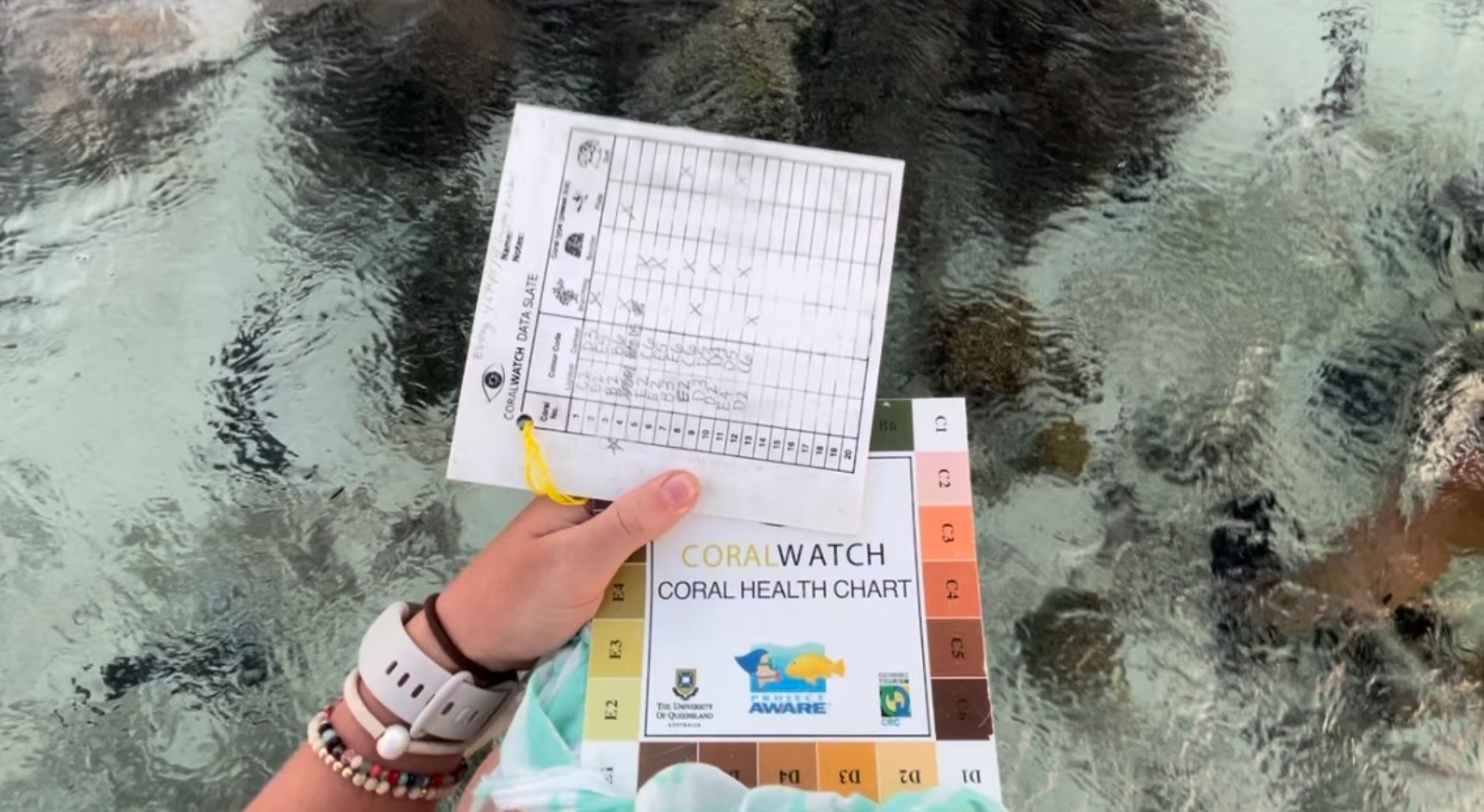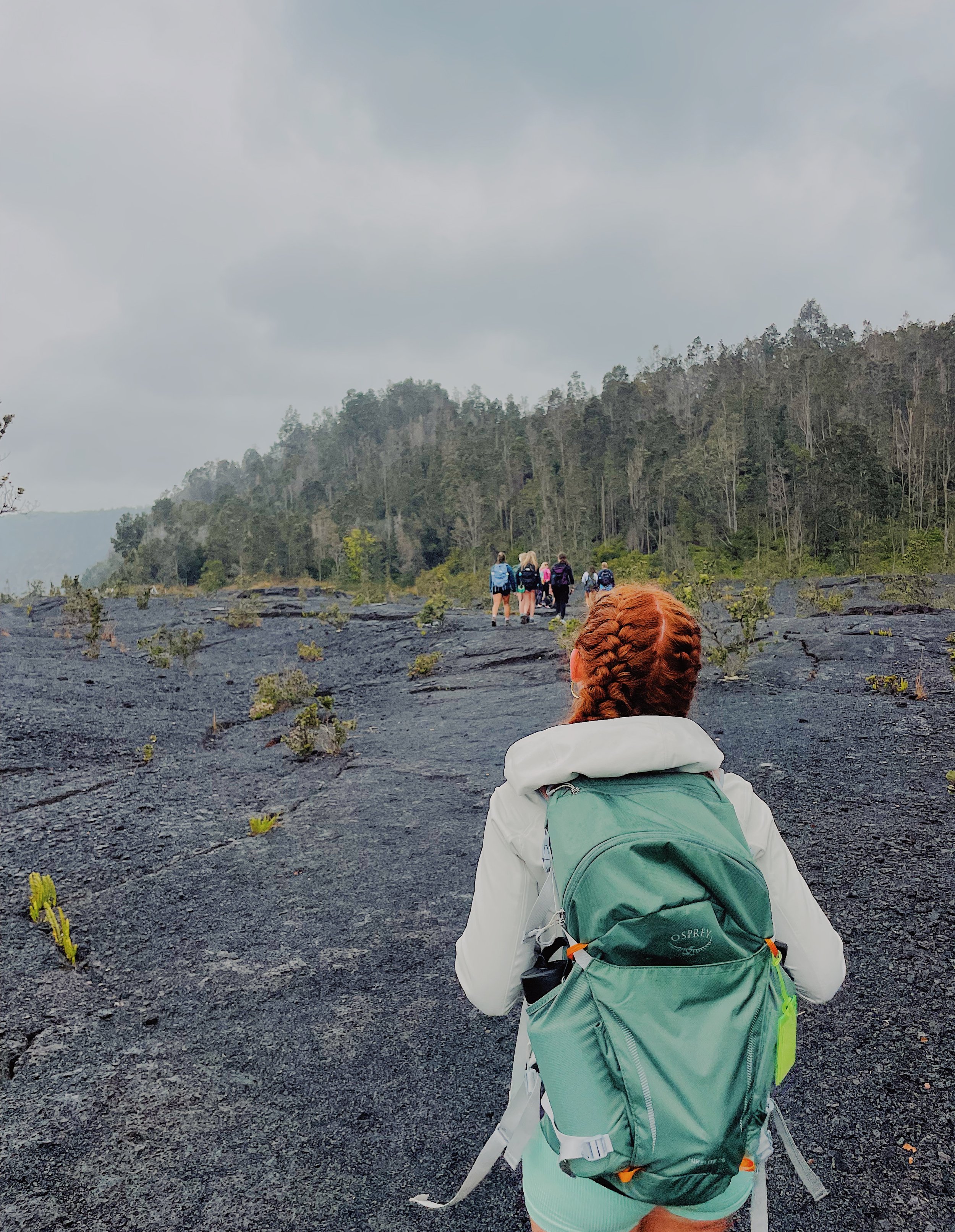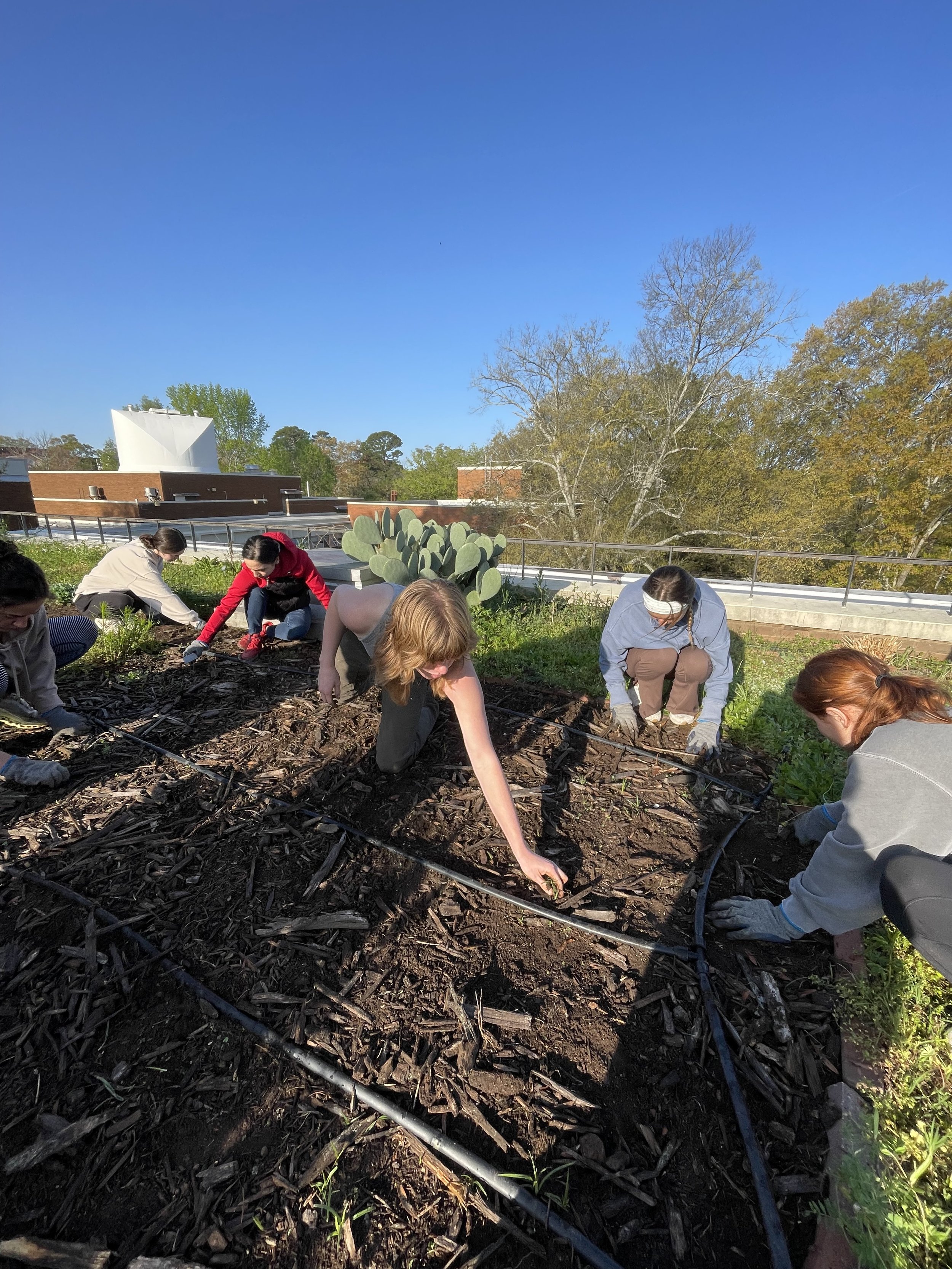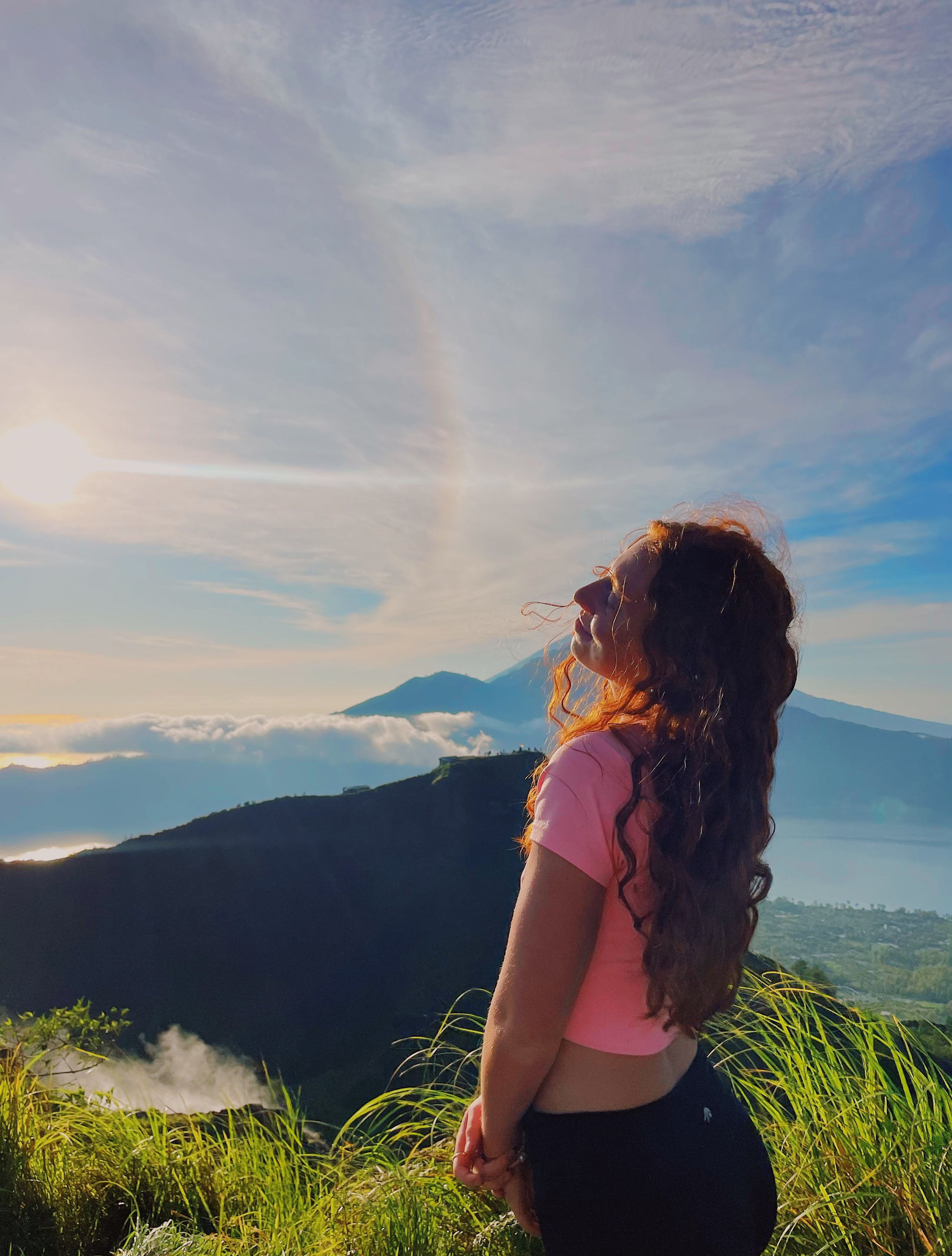
Reflections
Anchor
My anchor course is a class I was enrolled in during my time abroad in Hawaii, New Zealand, Australia, and Fiji. The course, People, Profit and Planet [FANR(ANTH)(ECOL)(GEOG)(INTL)], is a six credit class oriented towards introducing the concept of the “Quadruple Bottom Line,” incorporating a morality to the Triple Bottom Line. Essentially I left the course with the understanding of how humans need to acknowledge the moral standpoint of problem-solving rather than just the environmental, social and economic factors and consequences.
This course single handedly changed my entire perspective of the world and sustainability because of the way Michael Tarrant, my professor, asked us repeated questions and our opinion changed as we traveled from city to city and experience and learned more from our field guides and excursions. One of these consistent questions was: What is Progress? We were tasked with curating a short film with videos from our experiences and a voice-over of how we would answer that question, which I have attached as my artifact.. After weeks of debating the approach I wanted to take, I decided the key to progress is connection. Throughout the course, we learned how separation between humans and their environment is the largest reason for the lack of morality emphasis represented in the Triple Bottom Line and sustainability overall. Through personal experience of indulging myself in nature nearly 24/7 during the trip, I can attest this to be true. As someone who has always respected the environment, I had a new appreciation for all the complicated parts of an ecosystem and the stakeholders of environmental issues that I did not fully grasp prior to the course.
This is a very important understanding to have, because no matter what work I go into, I have a better understanding of Systems Thinking and determining what the “right” thing is in complex situations. I will use this skill in every problem solving situation where recognition of compromise and the moral sphere is vital.
Economic Sphere
As I studied abroad last Spring in Hawaii, Australia, New Zealand, Fiji, the bulk of my coursework was in People, Profit, Planet or FANR(ANTH)(ECOL)(GEOG)(INTL) 4271/6271, and it satisfied more than one sphere because it was a very holistic course. In an economic scope, that alludes to the profit part of People, Profit, and Planet. In the triple bottom line, the economy is so important to sustainability issues and how to fund the solutions to them. Throughout the course, I learned how different countries prioritize funding to sustainability more than the US and use government power to do so. It is a significant aspect of making progress that is often overlooked because of individual’s biases and opinions about what should and should not be implemented but ensuring that it is feasible and will be beneficial to the economy is just as important as it being beneficial in the social and environmental spheres.
Furthermore, I learned how GDP, the measurement for success in the United States, only measures the economic success of our country and does not accurately represent the well-being and livelihood of its citizens. Other countries across the world measures success, happiness, and well-being, and when all are considered, they often rank much higher in this criterion than the United States. It was very eye-opening and important for me to learn how we can look at other policies used in different places other than where I grew up and improve our own economy and ability to support our communities.
Environmental Sphere
My time spent abroad consisted of a combination of lectures and field studies courses. Specifically, Field Studies in Conservation (FORS(ANTH) 4270/6270) was an interactive and indulging educational experience taught by multiple professors, field guides, and land experts amongst many different national parks and marine reserves. As the group traveled from city to city and country to country, we were met with different field guides that led us through hikes, snorkels, outdoor research, amongst other excursions.
For instance, we conducted Citizen Science research on Lady Elliot Island in the Great Barrier Reef. I collected data about coral health by sampling random corals on the reef and recording their color and species. The information discovered was then transferred to a group of students working to compile a thesis about what they found based on the data collected, and whether the corals were doing better or worse than predicted.
This is just one example of the field studies I participated in, however all of them had a profound impact on sharpening my green skills and applying sustainability and conservation knowledge in real world applicable contexts. Not only does this benefit my knowledge on the subject matter, but it made the curriculum more meaningful to me because I saw with my own eyes why sustainability is so significant and how these protected areas can illustrate the impact conservation can have on the environment and wildlife.
Social Sphere
Global Agriculture is a course that is different from the other spheres because the social and cultural aspect of sustainability is represented more than other courses. We discussed many environmental issues such as deforestation, soil degradation, water pollution, and greenhouse gas emissions, how they are linked to different agricultural systems, along with methods that may make some of these processes more sustainable. A large part of the course was learning the differences between industrial, large-scale agriculture and smaller more local farming and how the practices within each can contribute to differing environmental impacts. In addition to the contrast between the different levels of agricultural businesses, we compared corporations from country to country, which offered a lot of insight on how the states could do better environmentally.
In the cultural realm of sustainability, it was interesting to learn how some cultures have developed unique food processing and production practices, some that could be very beneficial if they were applied to a higher-grade, more corporate farm. Economically, it is important to understand how incentivizing and policy plays a part in how farmers go about their agricultural methods. Often, the lack of sustainable procedures in commercial farming is due to the expenses and how the government won’t grant enough subsidies for expensive sustainable measures. This class was very educational on topics that I am not familiar with in the world of sustainability, and agriculture plays a huge role in environmental issues such as climate change, pollution, and carbon emissions. Overall, it broadened my knowledge about the direct impact of the food production industry on the environment
Seminars
First: Throughout the semester, I have enjoyed listening and learning from sustainability professionals from all different backgrounds and specialties, and I especially loved learning about Atlanta Sustainable Fashion Week as a fashion merchandising major. I was inspired by Tanjuria’s ability to prove that sustainability and fashion can go hand in hand. Additionally, Jim Porter’s presentation about coral reef health really hit home for me. I grew up in the ocean, and ocean conservation has always been important to me. As I studied abroad this past spring, we learned a lot about the corals in the areas we snorkeled in. Specifically on the Great Barrier Reef at Lady Elliot Island and in Beqa Island in Fiji, I conducted citizen science projects to study coral bleaching in different reefs. Learning about this topic from someone who has dedicated his life to research in coral reef health allowed me to tie my experiences abroad into the classroom which was rewarding and made that specific discussion very intriguing to me. Furthermore, it was beneficial to listen to the presenters that worked in fields I am not as interested in and see how interconnected sustainability is in every business.
Additionally, learning the competencies has helped me better understand how sustainability works on a global level. Collaboration competency especially has become significant through the seminar class meetings because of the group work we participated in throughout the semester. Overall, the best way to learn how integrated sustainability is in every aspect of the world is through the people who work in it everyday, and from my peers studying different fields of study than me.
Second: This semester was my second and last sustainability seminar, and I was also taking the Capstone at the same time which was very beneficial in tying in the competencies between both courses. The speakers were very influential in the class, especially Jim Porter whose presentation on warfare waste’s effect on coral reefs was very insightful. I wasn't aware that this was occurring and as someone who has spent a lot of time learning about coral reefs during my abroad experience, I was grateful to have an opportunity to learn about this issue and how he is working to try and save the reefs (continuing to do so in the most impressive way). Hearing people doing something to preserve the things you care about deeply in the world is a reminder of the good in humanity despite trying times.
However, it was so inspiring to hear how all the speakers paved the way for sustainability in their roles whether it was set for them or they had to create it from scratch. Entering the fashion industry in the next several months, this is something I want to prioritize in my career. I understand not every company will keep sustainability at the cornerstone of their brand, but I want to make it known how significant it is in any role I engage in.
Overall, it has been hopeful for me to see that there are people who want to encourage our generation to follow in their footsteps of collaborating and compromising to make the world a better place for generations to come.
Progress Video
